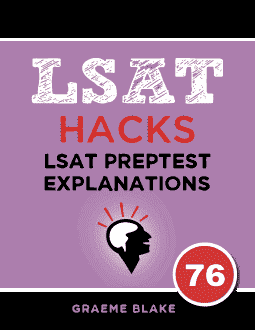This is an explanation for passage 1 of LSAT Preptest 76, the October 2015 LSAT. This passage is about Arnold Schoenberg. The author argues that while Schoenberg’s music has not always been well received by listeners, it is worthy of admiration for both its expressive range and its technical innovations.
This section has paragraph summaries and an analysis of the passage, links to the explanations for the questions are below.
Paragraph Summaries
- Quote from Critic.
- Explanation that quote applied to Beethoven, not Schoenberg.
(Subtext: The author expects us to like Beethoven, and dislike Schoenberg. Therefore it’s surprising that this quote that applies to Schoenberg was actually written about Beethoven.) - Beethoven and Schoenberg were both initially unpopular. It took a century for Beethoven to be accepted.
(Subtext: Schoenberg hasn’t had enough time to become popular) - Both Beethoven and Schoenberg started traditionally and then developed new styles. Schoenberg’s early music was like Brahms’, and most people would like this style if they tried it.
- Schoenberg then made music without tones. He thought this was the inevitable evolution of music.
- Later, Schoenberg developed a 12 tone system to order his new a-tonal music. This music is more technically impressive and therefore harder to listen to.
- The 12 tone system wasn’t Schoenberg’s true innovation. The real reason that Schoenberg’s music is difficult is that it forces us to face uncomfortable emotions.
Analysis
This passage is highly unusual in that it had seven paragraphs. Virtually all other RC passages have 3-4 paragraphs. Is the LSAT making RC less regular? We’ll see what style future tests use.
I’ve still summarized the paragraphs above and the main points I took out of them. I further knew where information was located, which is essential for quickly proving/disproving answers. You should know, at minimum, what I wrote above before starting the questions.
On paragraphs 2 and 3 I made notes titled “subtext”. This passage is unique in that the author is making some assumptions about you, the reader:
- The author assumes you know both Schoenberg and Beethoven’s music.
- The author assumes you like Beethoven and hate Schoenberg.
- The author assumes you know that Schoenberg composed during a later period than Beethoven.
The author is making the following argument:
“You say you don’t like Schoenberg? But you like Beethoven, right? Well, Beethoven was widely disliked for around a century, because his impressive technical innovations were hard to follow. Well, Schoenberg also made similar innovations, and probably you just haven’t had enough time to properly process them, dummy.
Let me explain why Schoenberg is worth your attention.”
(If the reader agreed with the author that Schoenberg was good, there would be no need to write such a forcefully worded essay.)
I haven’t seen an LSAT reading comp passage that makes this many assumptions about the reader. Of course, you don’t need to know anything about Schoenberg to figure out the perspective the author is taking: I hadn’t even heard of him before reading this passage. I took all of the above from author’s opinion indicators in the passage.
The passage itself gives clues about the author’s assumptions:
- The second paragraph introduces a shock: the quote is about Beethoven, not Schoenberg. This is only a shock if we expected the quote to refer to Schoenberg, and if we like Beethoven and are surprised to see him criticized in a way we disagree with.
- Paragraph three says it took over a century (1806 ➞ well into the 20th century) for Beethoven’s work to become popular. Since the author is analogizing Schoenberg to Beethoven, this implies that Schoenberg’s challenging works have been around for a century or less.
- Line 20: “Like Beethoven, Schoenberg….”. More evidence of an analogy.
- Lines 47-50: “….it would have been necessary to invent him.” It’s clear the author likes Schoenberg. Despite the fact that many listeners dislike him (lines 5-7).
So everything is there. I’ve just never seen a passage that demands such subtlety in interpreting it.
Incidentally, Arnold Schoenberg lives from 1874-1951, and his major works were in the early 20th century. This wasn’t in the passage, but you were nonetheless supposed to figure out that Schoenberg composed roughly a century after Beethoven.
The evolution of Schoenberg’s style is important. This is in lines 25-45. If you read those lines carefully, you’ll see that one style followed from another.
The final important point is that Schoenberg’s music was emotionally complex. The author thinks this is the true value and difficulty of Schoenberg. See lines 50-56.


Leave a Reply